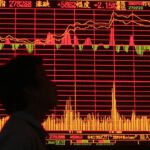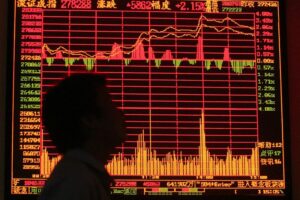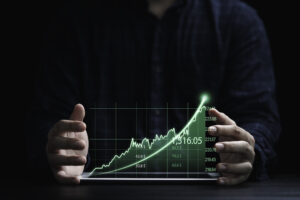
The best investors think in years, if not decades. Warren Buffett, one of the world’s greatest investors, has consistently pointed to patience as a key to his investing philosophy. Unfortunately, whether you adopt this approach or not, there will be some misses — not every company stands the test of time.
Things change, sometimes dramatically, but it’s easy to fall into the trap of recency bias, or assuming that what’s true today will be true tomorrow.
The biggest companies in 1989 by market capitalization
1. Industrial Bank of Japan: $104.3 billion
2. Sumitomo Bank: $73.3 billion
3. Fuji Bank: $69.4 billion
4. Dai-Ichi Kangyo Bank: $64.0 billion
5. Exxon Corporation (XOM 2.68%): $63.8 billion
This list may surprise you, but the Japanese market in the 1980s was massive. Six of the 10 biggest companies in the world at the time were Japanese. Today, only Toyota remains in the top 50.
Of these top five, only Exxon would have been a good investment to hold through those 35 years. The other four — none of which exist today as they did in 1989 — would have been money pits. Mizuho Financial Group, created after the merger of Industrial, Fuji, and Dai-Ichi, has a market capitalization of $51.2 billion as of this writing. In 1989, those companies had a combined market capitalization of over $240 billion.
The biggest companies in 2024 by market capitalization
1. Apple (AAPL 0.12%): $3.5 trillion
2. Microsoft (MSFT -0.76%): $3.2 trillion
3. Nvidia (NVDA -2.13%): $2.9 trillion
4. Amazon (AMZN -1.67%): $2.0 trillion
5. Alphabet (GOOG 0.89%) (GOOGL 0.75%): $2.0 trillion
This list is likely more familiar to you. These U.S. tech firms have dominated not just the market, but daily life, for years. For that reason, it’s probably even easier to fall into the trap of thinking it will always be so. But if history has anything to teach investors, it’s that the top five list should look different several decades from now. It’s important to keep that possibility in mind.
Still, these things don’t happen overnight. Any potential end to the U.S. tech sector’s dominance won’t happen anytime soon.
John Mackey, former CEO of Whole Foods Market, an Amazon subsidiary, is a member of The Motley Fool’s board of directors. Suzanne Frey, an executive at Alphabet, is a member of The Motley Fool’s board of directors. Johnny Rice has no position in any of the stocks mentioned. The Motley Fool has positions in and recommends Alphabet, Amazon, Apple, Microsoft, and Nvidia. The Motley Fool recommends the following options: long January 2026 $395 calls on Microsoft and short January 2026 $405 calls on Microsoft. The Motley Fool has a disclosure policy.






